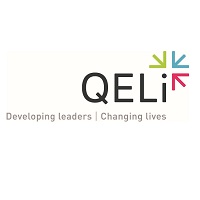Our school middle leaders need support: from their peers, principals and the professional learning community. They’re our Heads of Departments, Heads of Curriculum, Deans of Studies, Heads of Special Education Services, and Deputy Principals, who have the unique challenge of juggling competing priorities from both the teaching staff and the executive team.
With quality professional learning scattered sparsely amongst an abundance of pedagogical and curriculum-focussed support, and aspirant principal and executive leadership professional development, one team of researchers is focussed on evaluating current middle leadership professional learning, designed to support our middle leaders through this challenging landscape.
Our middle leaders are powerful people. They’re the conduits between a school’s principal and the classroom. It’s vital that we invest in their capabilities to lead and navigate this space with competence and confidence.
The research is clear—if we’re to form effective teams with true leadership capacity, we need to provide quality support and learning opportunities.
In years gone by, teachers put up their hands for middle leadership roles because they wanted to do more, or were encouraged to get a promotion, with little focus on developing their leadership skills first.
However, in twenty-first century schools, our middle leaders are now critical leaders of learning, and should be prepared as such, to ensure they have the skills and confidence to lead a team, and be responsive and agile.
To know and understand a quadratic equation is one thing; to influence someone who may have been circumstantially a peer, or to build a team with everyone on the same page is another, and is the real challenge. We need to ensure our middle leaders have access to quality support that focuses on capability, in order for them to have improved performance. The two go hand in glove.
Middle leadership is an excellent and rewarding career path in itself, and should not simply be viewed as a rung on the ladder to principalship. It comes with its own complex and, at times, competing challenges and priorities. What is important is that we ensure these leaders have access to role-relevant professional learning, to allow them to continue to make an impact on their classrooms and their school communities. After all, as educators, that is our common core moral purpose: to make a difference in the lives of children.
Reference:
Fluckiger, B., Lovett, S., Dempster, N., Brown, S. (2015) Middle Leaders: Career pathways and professional learning needs. Leading and Managing, Vol 21 (2), pp 60-74.
About QELi and Middle leadership
Queensland Education Leadership Institute (QELi) is a not-for-profit organisation that develops the capabilities of education leaders to help improve student outcomes. Since its beginnings in 2010, QELi has supported more than 7,000 education leaders from across Australia and internationally. QELi is a cross-sectoral industry leader, owned jointly by the Queensland Department of Education and Training, Queensland Catholic Education Commission and Independent Schools Queensland.
QELi’s Middle Leadership Program is a comprehensive professional learning program, held over six months. It gives middle leaders exposure to high quality leadership practice, with a particular focus on the effective leadership of teaching and learning. Participants develop into highly effective middle leaders through expert input, coaching, and putting theory into action at school.
For further information: www.qeli.qld.edu.au

